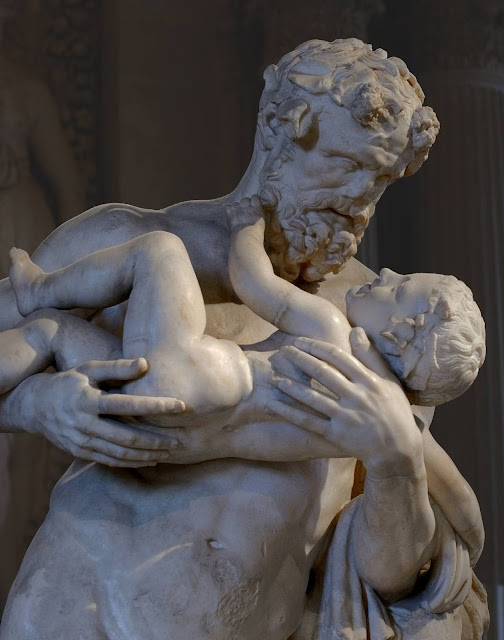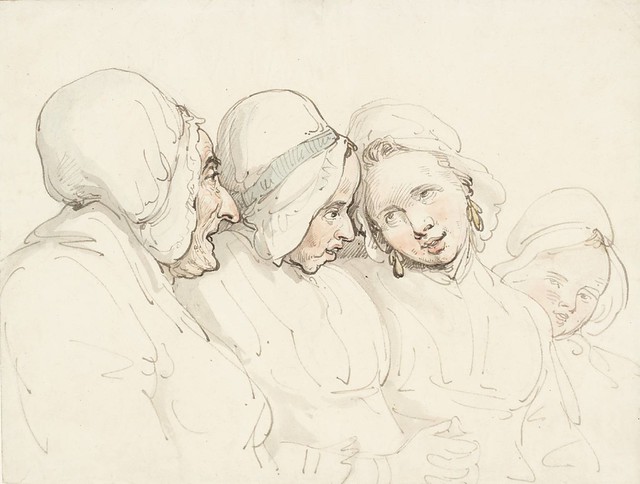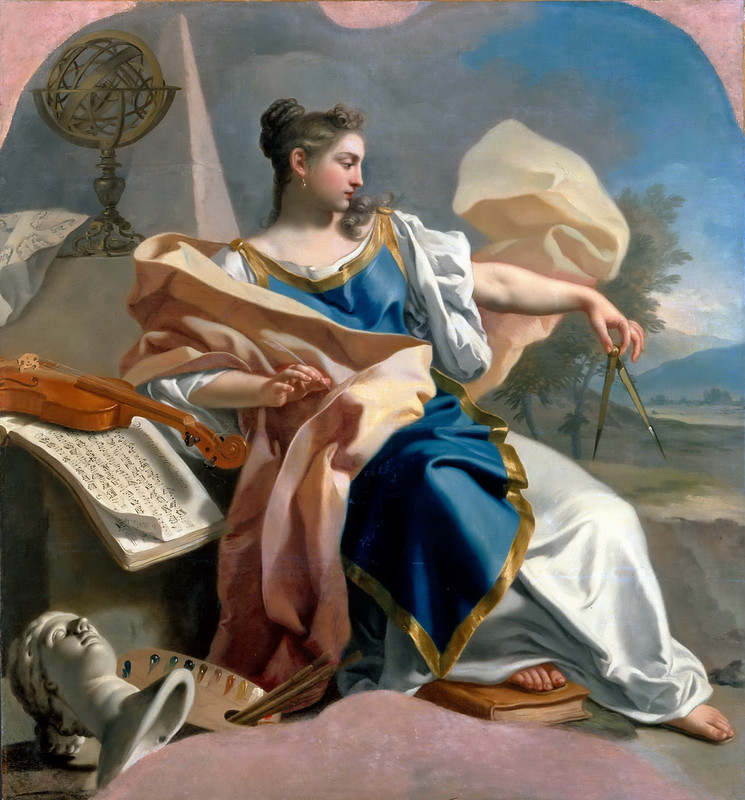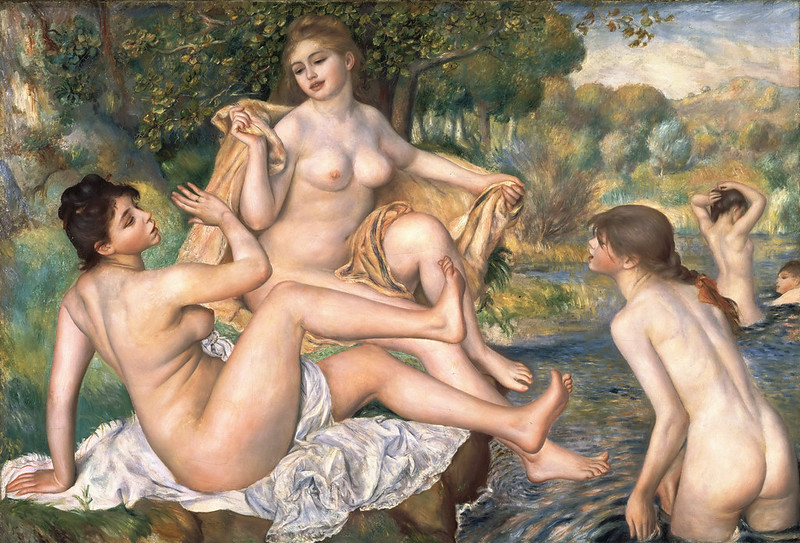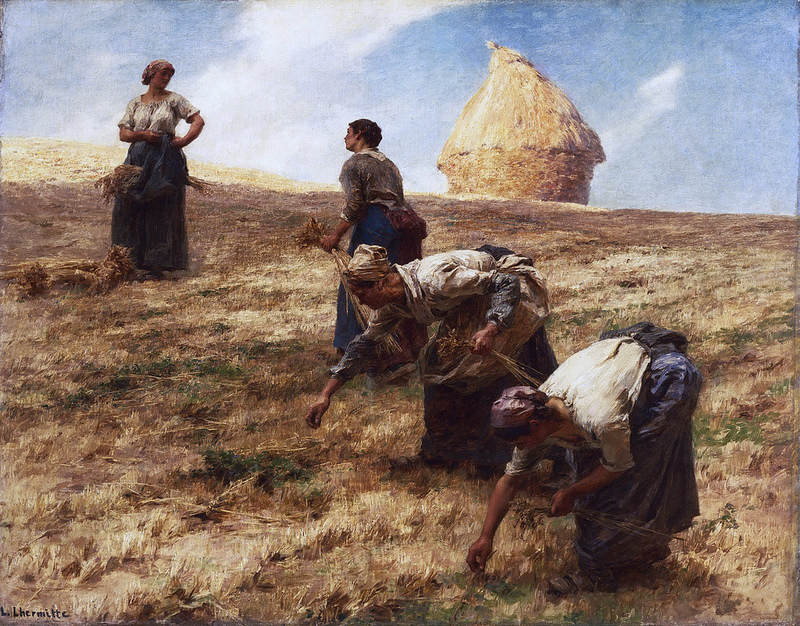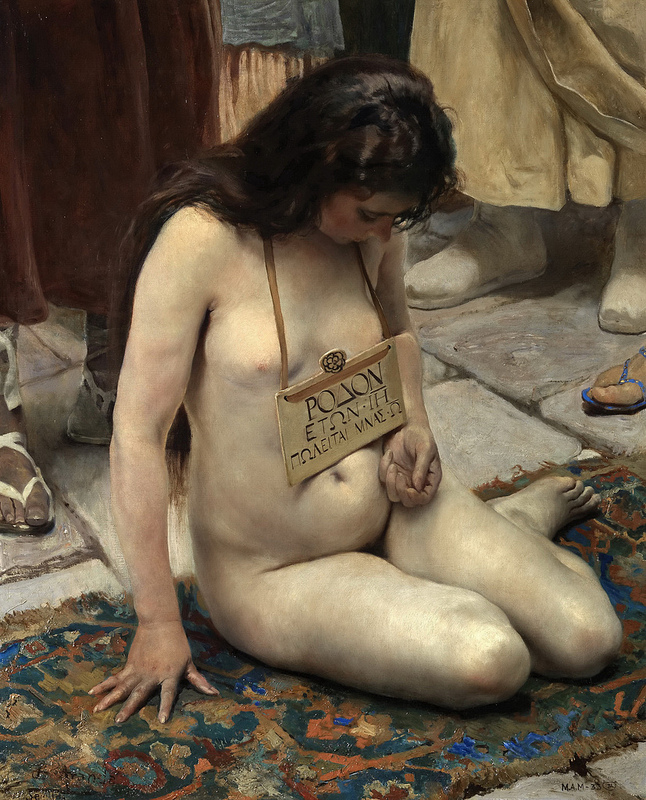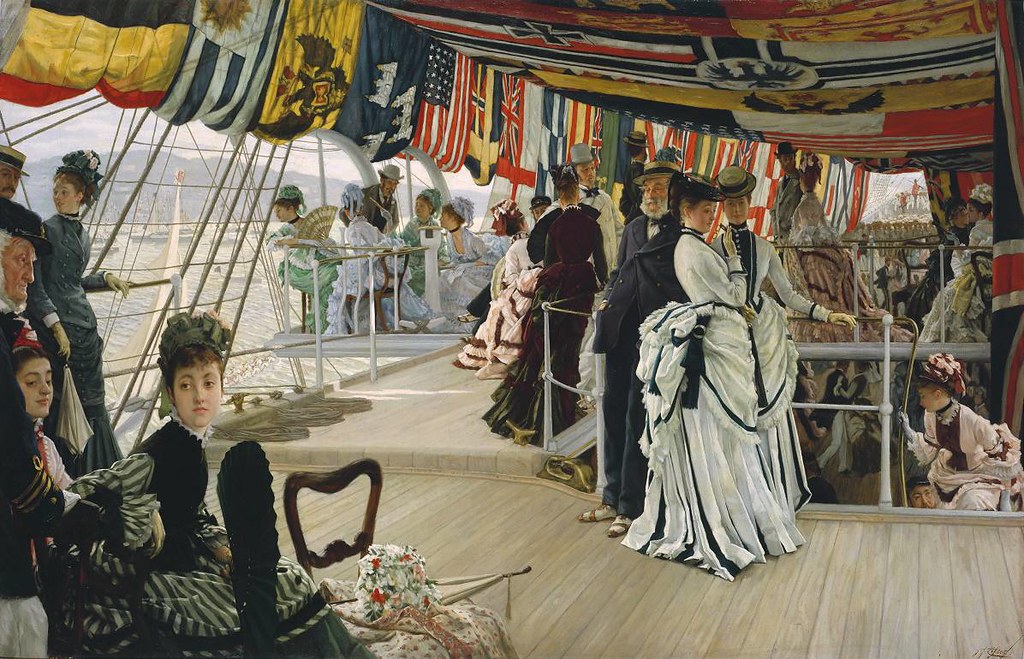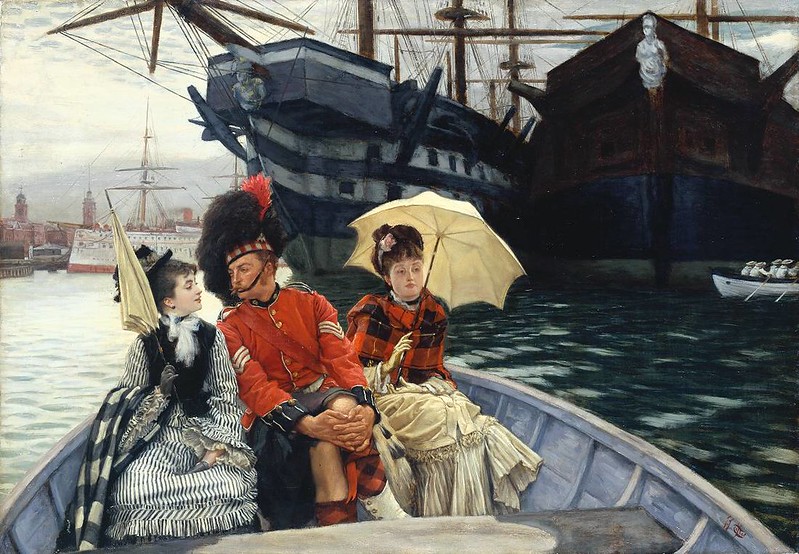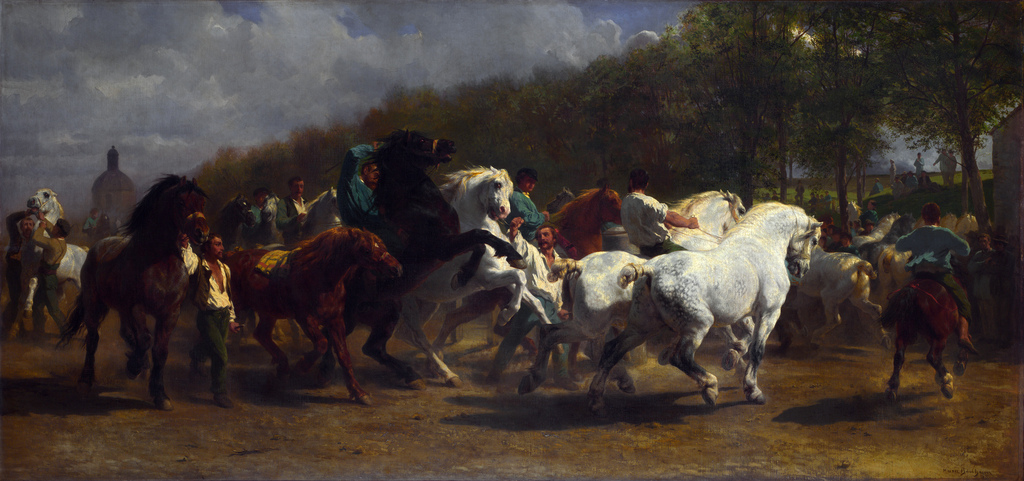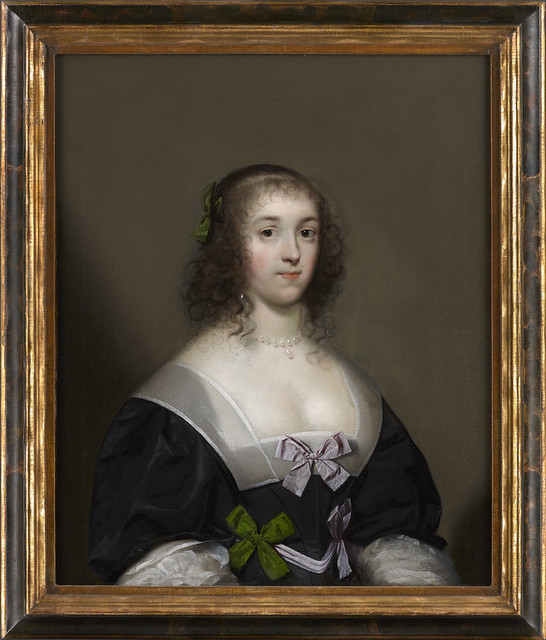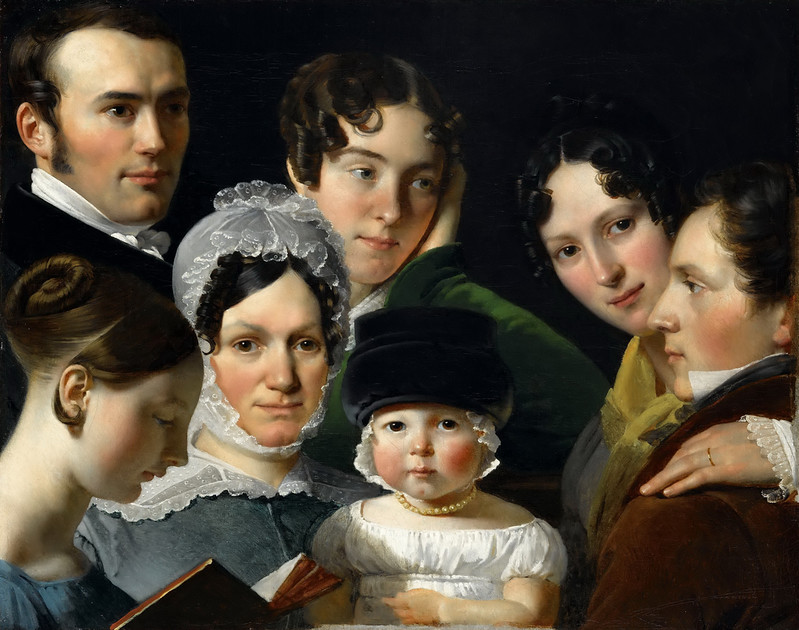Girodet
Girodet Girodet
About Me
- Girodet
- " Every day we should hear at least one good song , read one good poem , see one exquisite picture , and , if possible , speak a few sensible words . " Johann Wolfgang von Goethe "
Tuesday, 5 December 2023
Tuesday, 15 August 2023
Thursday, 10 February 2022
Monday, 13 September 2021
Saturday, 13 June 2020
Saturday, 9 November 2019
' Portrait of William Wilberforce ' Sir Thomas Lawrence , circa 1828 '
Born in Hull , Wiliam Wilberforce dedicated his life to the 'suppression' of the Slave Trade and the reformation of manners ' After years of political campaigning , Wilberforce's bill to end Britains involvement in slave trading was passed with a standing ovation from MPs in 1807. A further act of 1833 provided for the emancipation of enslaved Africans in British colonies.
Wilberforce suffered from illness for most of his adult life including a curvature of the spine, which resulted in him wearing a metal support. This helps to explain the unusual pose of this portrait, painted by Sir Thomas Lawrence (1769-1830), the most gifted and fashionable portraitist of the day.
Despite being in pain during the sitting, Wilberforce recorded that he had spent " a very plesasant hour " with Lawrence. The artist, however, was unable to entice Wilberforce back for further sittings, consequently the portrait was unfinished at Lawrence's death.
Thursday, 7 November 2019
Thursday, 10 October 2019
Wednesday, 9 October 2019
Wednesday, 8 May 2019
' Schindler's List - John Williams - N.L Orchestra Soloists Simone Lamsma ( violin) Davida Scheffers ( cor anglais )
Simone Lamsma (violin) -Davida Scheffers (cor anglais)
Davida Scheffers has lived her dream in winning a contest and the opportunity to play with the Durch Orchestra . . Davida suffers from an extremely painful neuromuscular condition that derailed her career , and she thought she would never get to play in a professional orchestra again. ........The young blond lady is her daughter celebrating her 18th birthday ...
Wednesday, 16 January 2019
Tuesday, 11 September 2018
Khatia Buniatishvili Un Violon sur le sable Royan 2017...
Khatia Bhuniatishvilli interpretation of Rach 2 is simply breathtaking..I have loved this piano concerto all my life, I have seldom heard it better played and never with such emotional intensity . An amazing performance . Bravo Khatia
Monday, 10 September 2018
Friday, 7 September 2018
Friday, 6 April 2018
Tuesday, 20 March 2018
Saturday, 10 March 2018
Wednesday, 4 October 2017
Friday, 1 September 2017
Wednesday, 23 August 2017
Tuesday, 22 August 2017
Monday, 13 February 2017
Friday, 14 October 2016
Wednesday, 12 October 2016
Saturday, 28 September 2013
' St Albert tied to a Tree 'José de Ribera (Spanish 1591-1652) Red chalk on paper, circa 1626. The British Museum, London
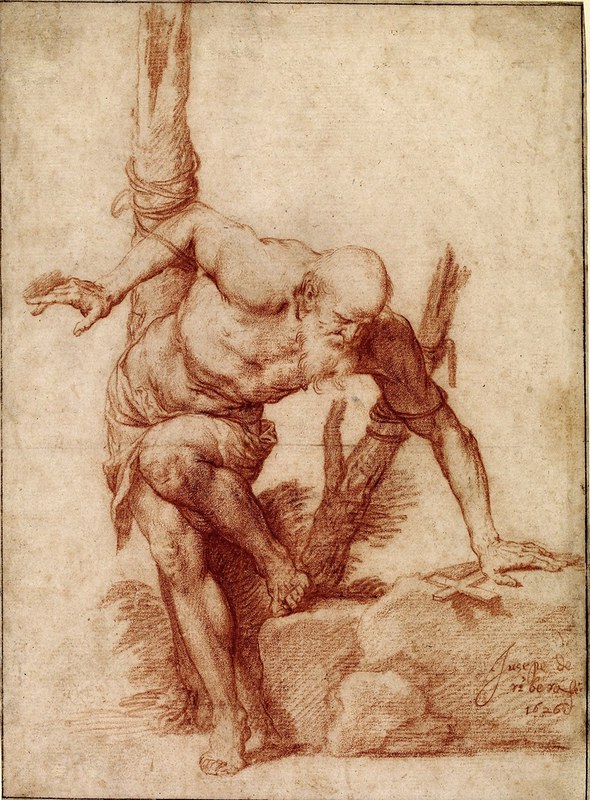
The expatriated José de Ribera (1591-1652) was known in Italy as "Lo Spagnoletto" (or the 'little Spaniard') De Ribera enjoyed the luxury of international patronage , from Spanish Royalty to the Roman Catholic Church. Throughout his career he was commended for his ability to depict mental and physical suffering , with sensitivity for line and light .
' Four Generations ' Thomas Rowlandson (English 1756-1827) Ink and watercolour on paper , circa unknown, Tate Gallery, London.
' Allegory of The Arts ' Francesco de Mura (Italian 1696-1782) Oil on canvas , citca 1747-50. Musée du Louvre, Paris.
' A Philosopher Lecturing on The Orrery ' Joseph Wright of Derby ( English 1734-1797) Oil on canvas, circa 1766. Derby Museum and Art Gallery , Derby , England.
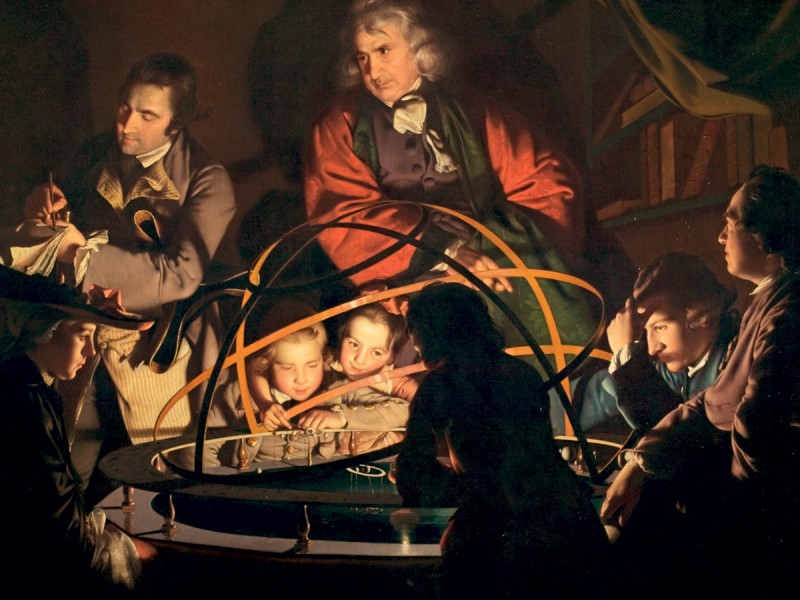
In this picture showing a lecture centered on an Orrery, Joseph Wright of Derby uses the light of a candle in the place of the sun in the orrery to show the wonder on the watchers faces.
During the 18th century Enlightenment period philosophers had begun to understand the world and our place in it. During public lectures all over the country this understanding was passed to many people . Joseph Wright captures perfectly how enthralling such lectures must have been .
The effects of light fascinated Joesph Wright of Derby . An attorneys son , he trained as a portrait painter in London , but he returned to Derby , the first major English painter to build his career outside the capital . With scientific experiments a source of general fascination , his meticulously painted figure groups in dark interiors illuminated by candles or lamps carried his reputation to London . His dramatic contrasts showed the influence of artists such as Gerrit van Honthorst and Rembrandt van Rijn , but Wright invented the scientific Enlightenment subject : scenes of experiments , new machinery and the leaders of the Industrial Revolution.
' The Fortune Teller ' Simon Vouet (French 1590-1649) Oil on canvas, circa 1620. National Gallery of Canada , Ottawa.
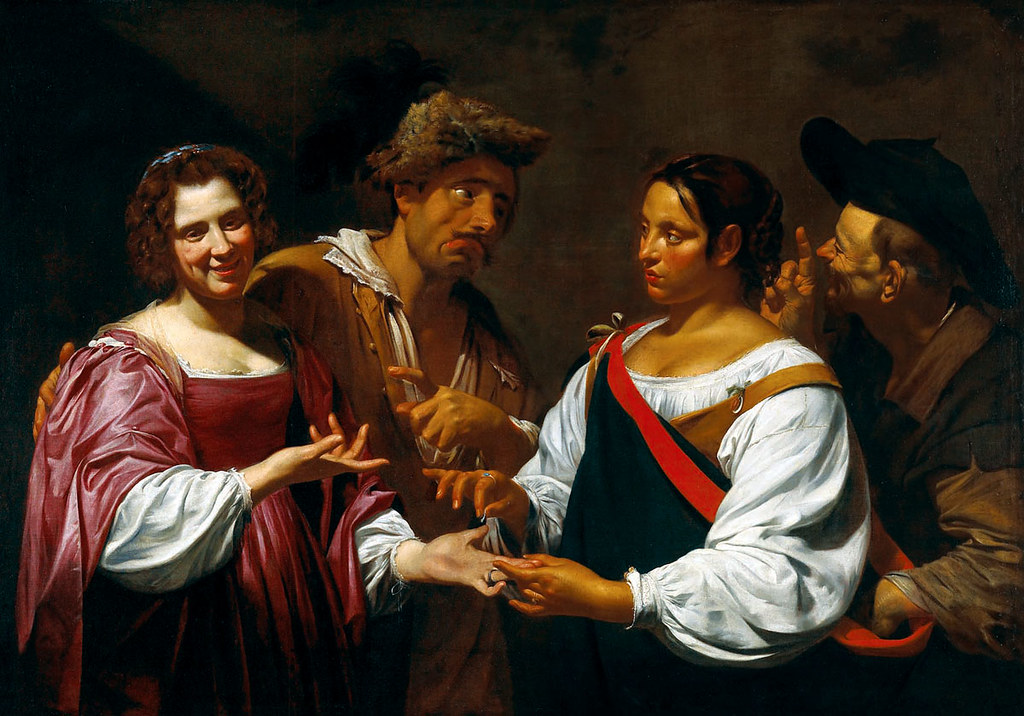
This painting is Vout's response to Caravaggio's 'Gypsy Fortune Teller' and is altogether more theatrical . The woman on the left smiles , pulling us into the picture . A contrived show of gesturing hands and conspiratorial glances tells the story : the gypsy fortune teller , a stock character assumed to cheat her clients , is herself being robbed . Vouet offers a farce , full of vivid observations , in place of Caravaggio's more universal tale of the perils of human desire.
Simon Vouet (1590-1649) was a leading French baroque painter and an arbiter of taste for almost 20 years . The son of an artist, he settled in Italy in 1630 , living chiefly in Rome . His style shows an individual talent and a profound study of Italian painters especially Veronese . Vouet soon enjoyed high favour , including the patronage of Pope Urban V111. In 1627 he was invited back to France , where he became first painter, a position challenged only once , in 1640-42 , when he was brought into an artificial rivalry with Poussin.
Friday, 20 September 2013
' Portrait of Elizabeth Farren ( detail) 1759-1829. Thomas Lawrence (English 1769-1830) Oil on canvas , circa before 1791. The Metropolitan Museum of Art, New York .
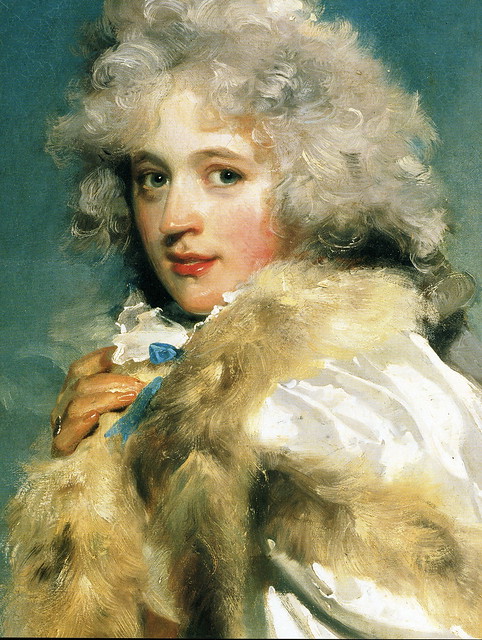
Elizabeth (née Farren ), Countess of Derby (1759-1829) , Actress , second wife of Edward Smith Stanley , 12th Earl of Derby.
Called the Queen of Comedy by Horace Walpole, Elizabeth Farren was the star of Drury Lane for twenty years until her marriage to the 12th Earl of Derby in 1797. Noted for her vivacity and style , she took leading roles in plays by Colman , Sheridan and other contemporary authors.
' The Gleaners ' Jean-Francois Millet (French 1814-1875) Oil on canvas , circa 1857. Musée d'Orsay, Paris.
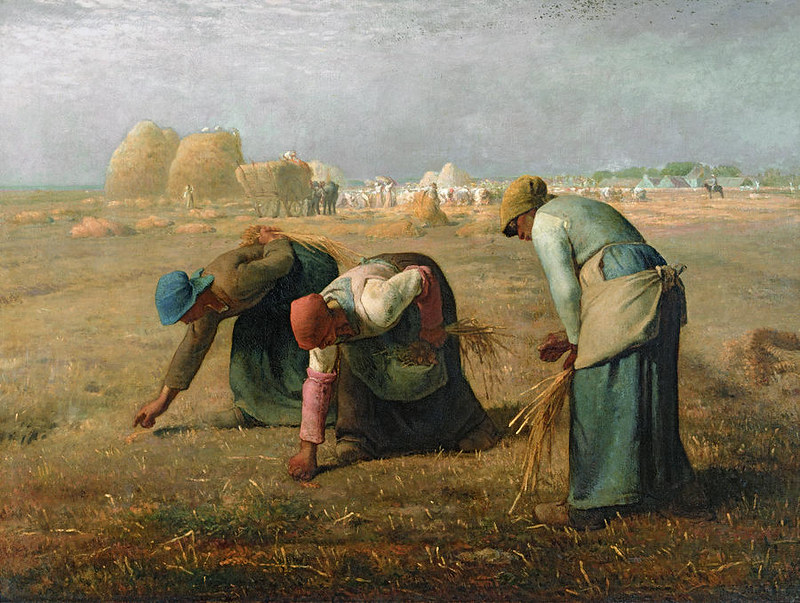
True to one of Millet's favourite subjects - peasant life - this painting is the culmination of ten years of research on the gleaners.These women incarnate the rural working-class. They were authorised to go quickly through the fields at sunset to pick up , one by one , the ears of corn missed by the harvesters. The painter shows three of them in the foreground , bent double , their eyes raking the ground. He thus juxtaposes the three phases of the back-breaking repetitive movement imposed by this thankless task : bending over , picking up the ears of corn and straightening up again .
' Samson and Delilah ' Gerrit van Honthorst (Dutch 1590-1656) Oil on canvas , circa 1615. Museum of Art, Cleveland .
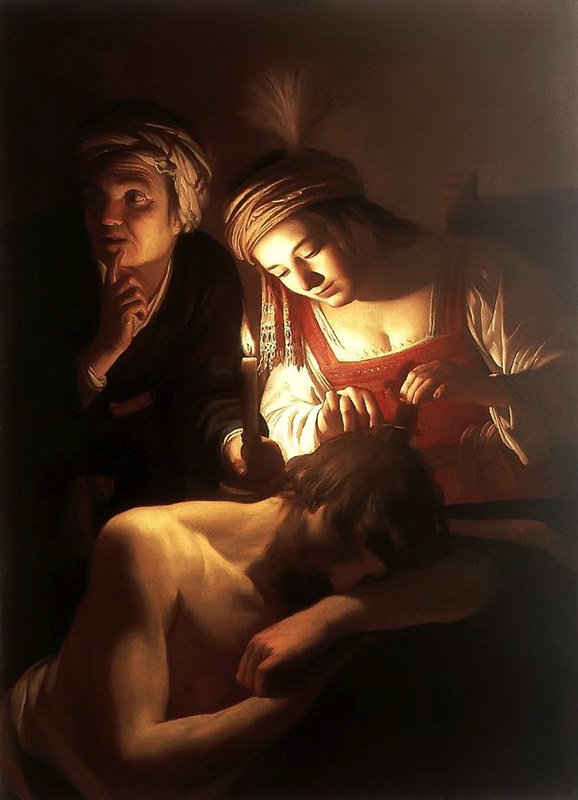 <
<Samson single-handedly crushed the Philistine army . In turn , the Philistines bribed his lover, Delilah , to reveal Samson's source of strength ; his hair, uncut since birth. While Samson was asleep , Delilah signaled a waiting Philistine , who sheared the hero, rendering him helpless. Honthorst intensified the narrative by having Delilah cut Samson's hair herself . An old woman also warns us against waking him , which implicates the viewer in Samson's emasculation.
' Broken Eggs ' Jean-Baptiste Greuze (French 1725-1805) Oil on canvas, circa 1756. The Metropolitan Museum, New York.
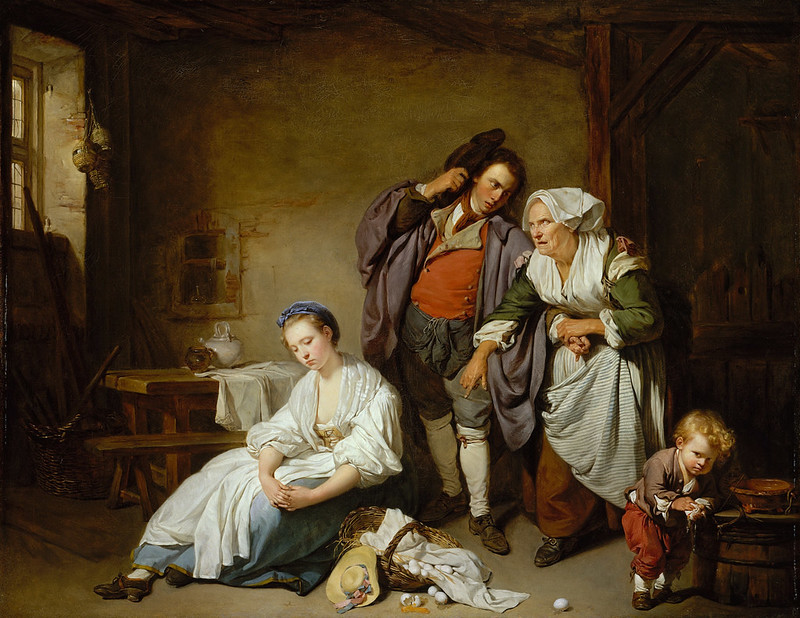
'Broken Eggs' attracted favourable comment when exhibited at the Paris Salon of 1757. One critic noted that the young girl had a noble pose worthy of a history painter. It's pendant was 'The Neapolitan Gesture' of 1757, in which several of the same models appear, but the seducer is foiled by the old woman ( the broken eggs of the title symbolise the loss of the serving girls virginity )
' The Defence of Rorke's Drift 1879 ' Alphonse-Marie-de Neuville ( French 1835-1885) Oil on canvas, circa 1880. Art Gallery of New South Wales.
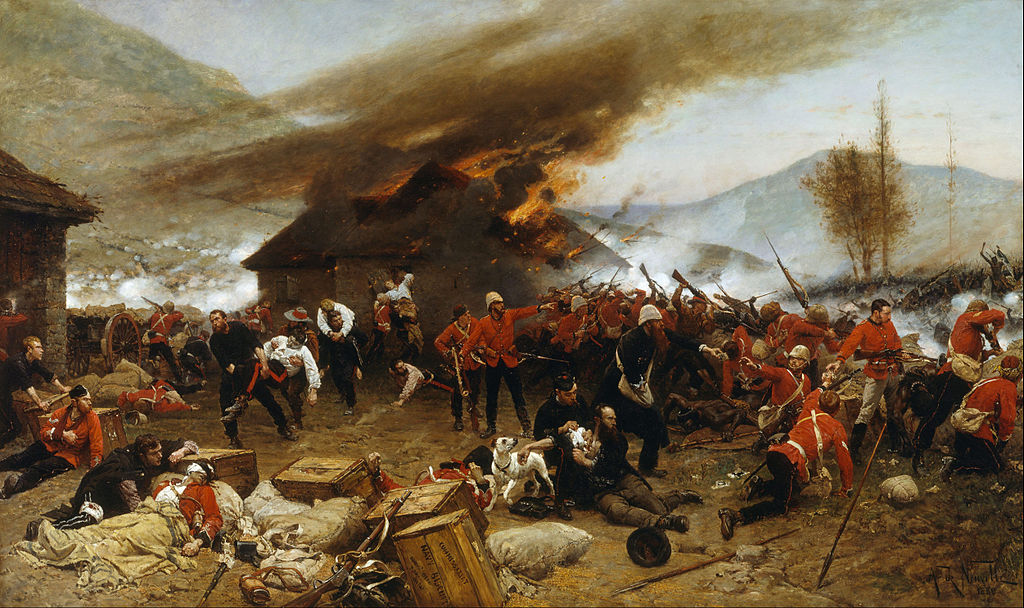
'The Defense of Rorke's Drift ' was a battle in the Anglo-Zulu war. Just over 150 British troops successfully defended the garrison against an intense assault by 3,000-4,000 Zulu warriors. , The massive attacks came very close to defeating the tiny garrison but were ultimately repelled. Eleven Victoria Crosses were awarded to the defenders, along with a number of other decorations and honours. ( See history , Anglo-Zulu War )
Wednesday, 11 September 2013
'Springtime ' Pierre-Auguste Cot. (French 1837-1883) Oil on canvas, circa 1873. Metropolitan Museum of Art, New York.
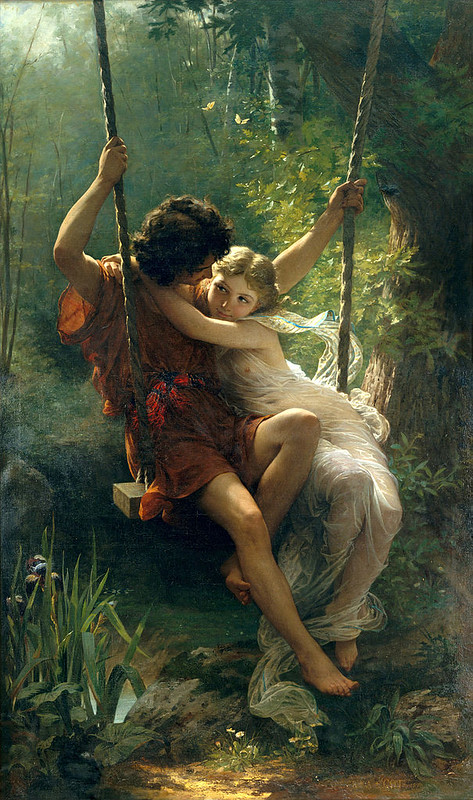
Pierre-August Cot (1837-1883) received most of his academic training at the hands of Bouguereau , Cabanel and Léon Cogniet . He first exhibited at the Salon of 1863 . For the next two decades he enjoyed success as a painter of allegorical and historical pictures and as a fashionable portraitist . This painting ( Springtime' ) however remains his most celebrated work . It was exhibited to great acclaim at the Salon of 1873, which also featured Bouguereaus' 'Nymphs and Satyr ' ( see earlier post ) John Wolf bought both paintings after the close of the Salon.
A visitor to the Wolf home described the flirtatious duo in 'Springtime' as : " in the most dangerous and inflammable of the teens ....the cunning eagerness with which the maid looks right into the boys eyes is modern in meaning and antique in dress. ...."
Monday, 9 September 2013
' Slave For Sale ' José Jiménez Aranda (Spanish 1837-1903) Oil on canvas , circa 1892. Museo Nacional del Prado . Madrid
Sunday, 8 September 2013
' The Hirleling Shepherd ' William Holman Hunt ( English 1827-1910 ) Oil on canvas , circa 1852. City of Manchester Art Galleries, Manchester.
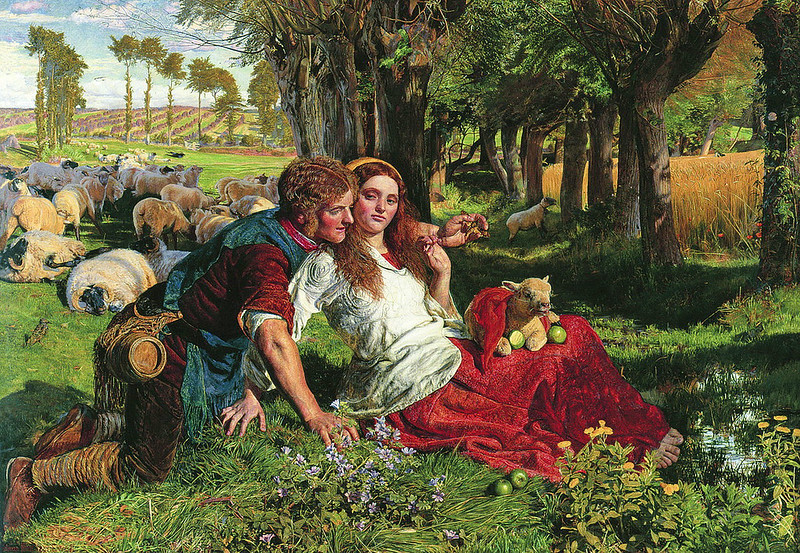 'The Hireling Shepherd ' is a more complex work than first might seem . In a well known letter to J.A.Pythian , Holman Hunt explained that although his first intention was to present a realistic shepherd and shepherdess he also had 'an occult suggestion in mind of a simple charactor .' When the painting was exhibited at the Royal Academy , Hunt included these lines from King Lear as an epigraph :
'The Hireling Shepherd ' is a more complex work than first might seem . In a well known letter to J.A.Pythian , Holman Hunt explained that although his first intention was to present a realistic shepherd and shepherdess he also had 'an occult suggestion in mind of a simple charactor .' When the painting was exhibited at the Royal Academy , Hunt included these lines from King Lear as an epigraph :Sleepeth or waketh thou , jolly shepherd ?
Thy sheep be in the corn ;
And for one blast of thy minikin mouth ,
Thy sheep shall take no harm. (Act 111, scene 6 )
The letter to Pythian went on to explain that
Shakespeare's song represents a shepherd who is neglecting his real duty of guarding the sheep : instead of using his voice in truthfully performing his duty , he is using his " minikin' mouth "in some idle way. He was a type thus of other muddle headed pastors who instead of performing their services to their flock discuss vain questions of no value to any human soul.
' Portsmouth Dockyard ' James Tissot (French 1836-1902) Oil on canvas , circa 1877. Tate Gallery, London.
' The Horse Fair ' Rosa Bonheur (French 1822-1899) and Nathalie Micas. Oil on canvas , circa 1855. The Metropolitan Museum of Art, New York.
' Whistlejacket ' George Stubbs (English 1724-1806) Oil on canvas, circa 1762. The National Gallery, London.
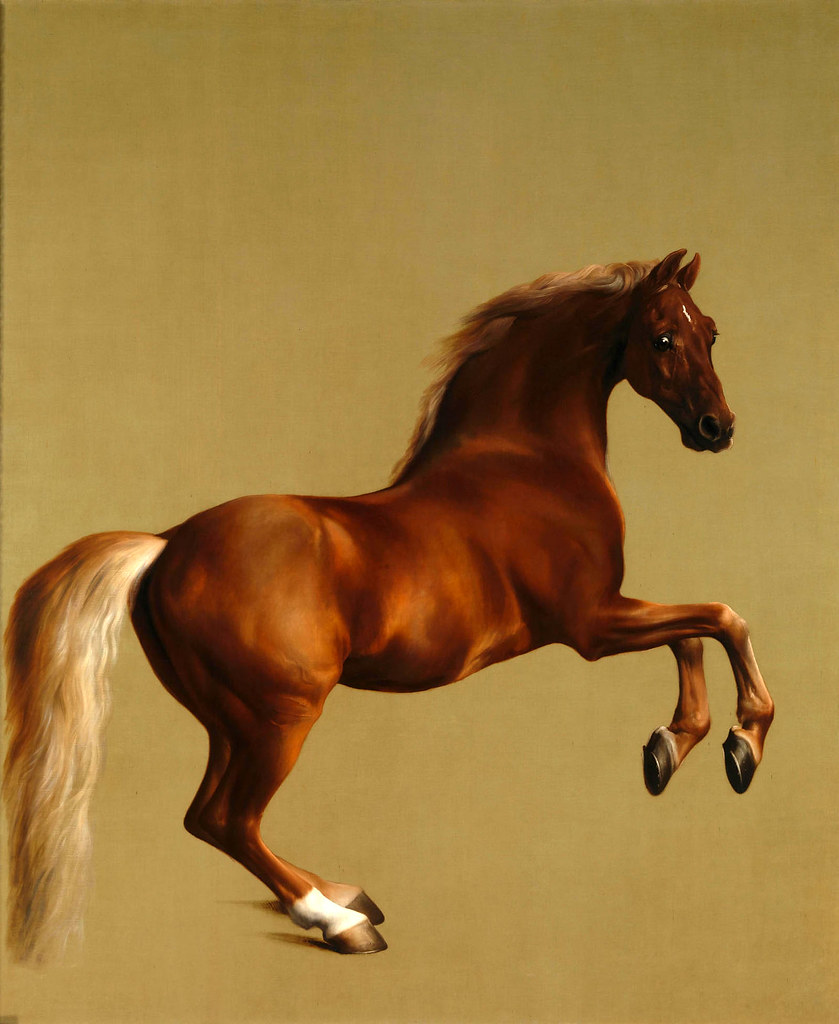 George Stubbs (1724-1806) painting depicts 'Whistlejacket' , the Marquess of Rockingham's famous racehorse , rearing up against a blank background . The huge canvas (10x8'), lack of other features , and Stubbs' attention to the minutest details of the horse's appearance give the portrait a huge physical presence .
George Stubbs (1724-1806) painting depicts 'Whistlejacket' , the Marquess of Rockingham's famous racehorse , rearing up against a blank background . The huge canvas (10x8'), lack of other features , and Stubbs' attention to the minutest details of the horse's appearance give the portrait a huge physical presence .George Stubbs was classified in his lifetime as a sporting painter, and as such was excluded from full membership of the Royal Academy . He is best remembered for his paintings of horses and his conversation pieces . Having studied anatomy , Stubbs's paintings of horses are among the most accurate ever painted , but his work is lyrical and transcends naturalism.
Saturday, 7 September 2013
' Young Woman Combing Her Hair ' Soloman du Bray ( Dutch 1597-1694 ) Oil on canvas , circa 1635. Louvre Museum, Paris .
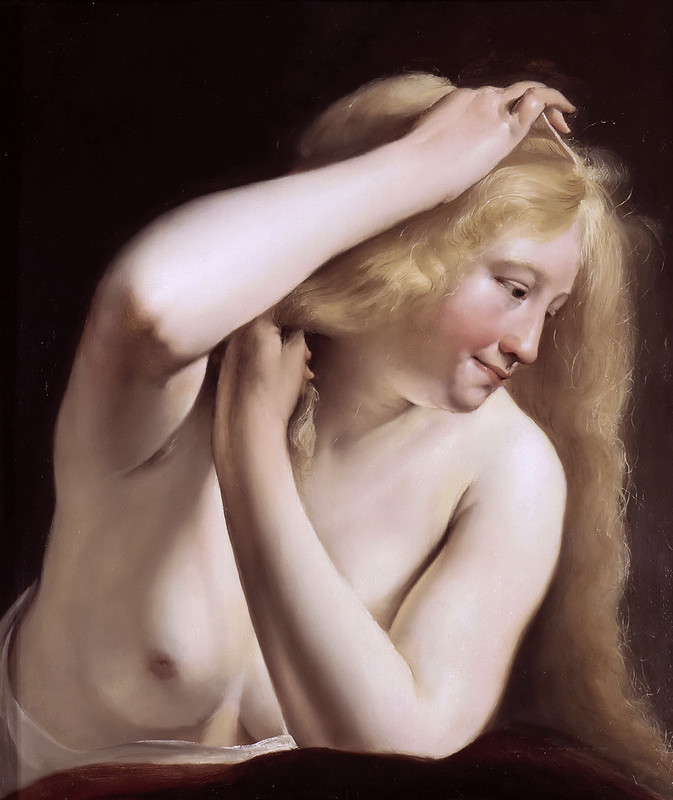 Soloman du Bray (1797-1694 ) architect and painter from the Dutch 'Golden Age ' spent nearly his whole life in Haarlem ; playing an important part in Haarlems' cultural projects and institutions. He painted mostly religious and mythological scenes .
Soloman du Bray (1797-1694 ) architect and painter from the Dutch 'Golden Age ' spent nearly his whole life in Haarlem ; playing an important part in Haarlems' cultural projects and institutions. He painted mostly religious and mythological scenes . In 1663-1664, the plague struck the du Bray family , killing both parents and four of their ten children . The surviving sons , Jan , Dirk and Joseph became painters.
Subscribe to:
Comments (Atom)












